1-888-684-2961 Security Alert Pop-up is Unique Combination of Tricky and Nasty
1-888-684-2961 pop-up can’t be trusted, no matter it resembles the layout of BSOD, or pretends to be an official warning from Microsoft/Apple support. If you get such a message saying you need to call this toll-free helpline immediately to unblock your computer, don’t rash take its points. Since this Ad holds your browser screen hostage, you may fail to do a simple search or get a navigate normally. Sometimes it is accompanied by a loud noise beeping "Critical Alert" repeatedly.
To remind you, all these are tactics to make you behave irrationally. You should not ring 1-888-684-2961 as this number is not ran by Microsoft technician. You won’t enjoying communicate with talkative swindlers who are ready to convince to pay for useless service or product. And of course, you are not suggested to grant unknown people to access your computer remotely since you may be exposed to serious risks such as malware installation, information leakage or even financial loss.
Technically speaking, Call (888) 684-2961 fake security alert is technically triggered by an adware or PUP, which can not only modify relevant settings, but also activate certain bad codes constantly on your browser. It is no wonder why you keep getting this fake security cutting in your browsing. You should know that if you do not locate and expunge the adware bundled with this phishing alert from your device, scam harassment and other malicious activities won't stop. Need help with scam removal? Try the following plans!
Plan C: Remove 1-888-684-2961 pop-up Manually from Win/Mac OS
Plan A: Remove 1-888-684-2961 pop-up Automatically from Win OS with SpyHunter
| *** SpyHunter by Enigma Software Group LLC is a spyware detection & removal tool providing rigorous protection against the latest threats including malware, trojans, rootkits & malicious software. *** It will update malware detection and removal definitions daily, offer you free technical support and custom fixes for hard-to-kill malware. *** This program certified by West Coast Labs’ Checkmark Certification System will assist you to protect your Win OS from malicious threats with limited interaction. |
Step 1. Click the following icon to get malware removal tool SpyHunter and install it on your computer

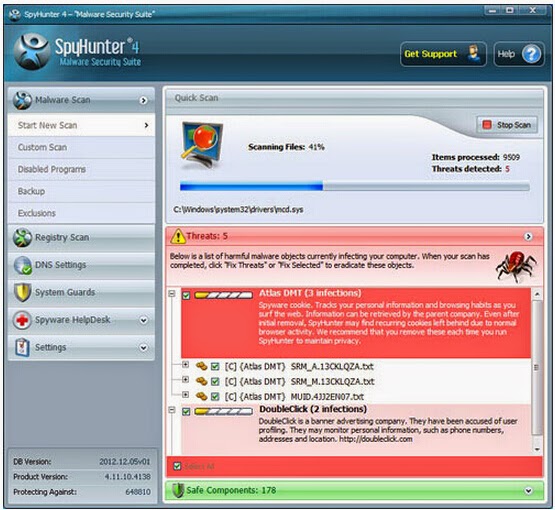
Step 3. Get rid of all detected items by clicking "Fix Threats" button
Plan B: Clean up 1-888-684-2961 pop-up Automatically from Your Mac with MacKeeper
MacKeeper has impressive features: *** Search and solve, that offers you information about cleaning, the performance and the security of your computer. *** Internet Security, a module that once installed protects you against malware. *** Antitheft, to locate your Mac in case of theft. *** Expert at hand, thanks to which you can get in touch with specialists. Therefore, if you want a program that allows you to have full control on your Mac's security, this is the tool you need. |
Step 1. Download MacKeeper and get it installed to your Mac by following the on-screen tips.
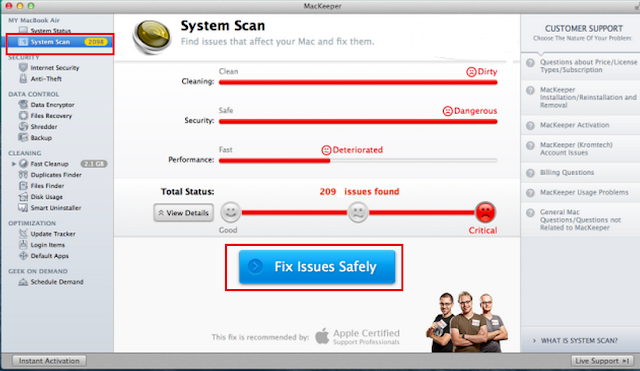
MacKeeper can do more than erase all sorts of internet threats and allow you to have full control on your Mac’s security. If you have any problem using this tool, you could get in touch with specialists from its Geek on Demand feature.

Plan C: Remove 1-888-684-2961 pop-up Manually
Step 1. End malicious processes generated by this Ad
On Windows Computer: Press key combination (Ctrl+Alt+Del) to launch Task Manager
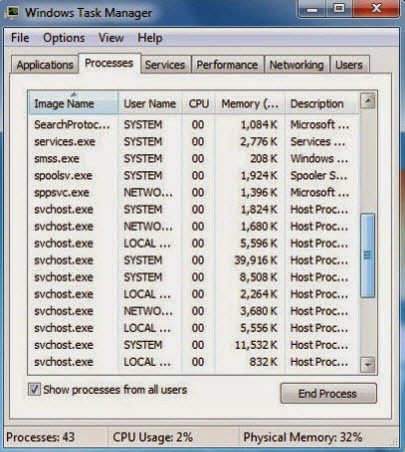
On Mac OS:
Choose Force Quit from the Apple menu, or press key combination (Command + Option + Esc) to open the Force Quit Applications window to do this.
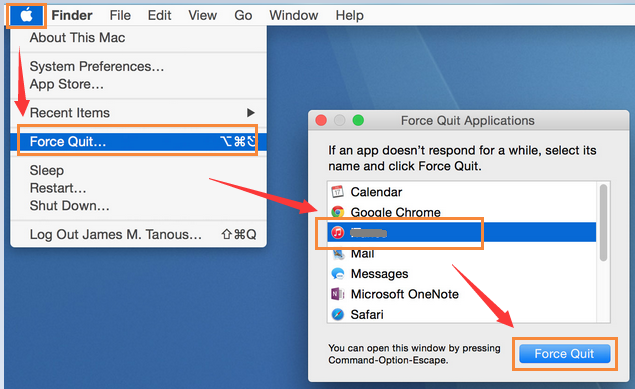
Step 2. Uninstall unwanted program/application that bundled with this Ad
On Windows Computer:
Win 7: Go to the “Start” menu, select “Control Panel”. Locate “Programs”. If there is anything related to 1-888-684-2961 pop-up program on the list of your Programs, then select it and uninstall it.
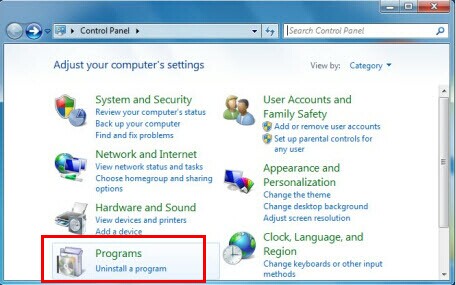
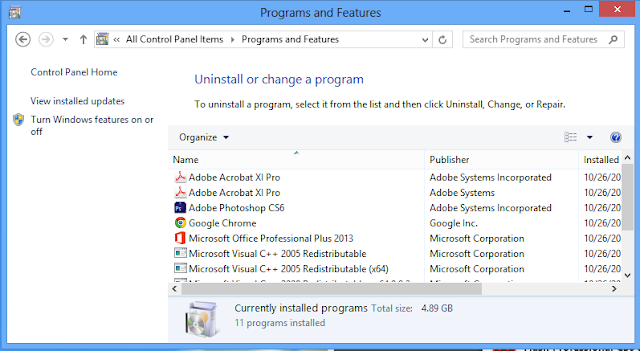
Win 10: Go to the “Start” menu, select “Settings” and then “System”; Click on “Apps & features”, if there is pop-up Ads related item, select and uninstall it.
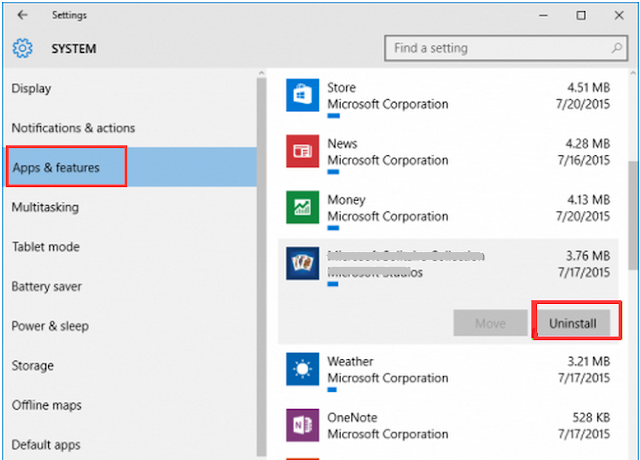
On Mac:
Open the Applications folder in the Finder (or go to the Menu Bar, open the “Go” menu, and select Applications in the list), search for Suspicious application, and then drag it to the Trash (in the dock)
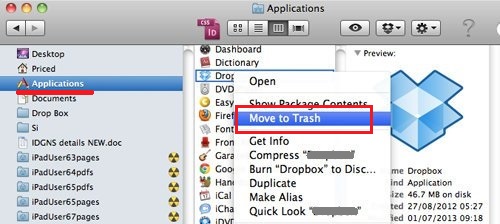
Step 3. Reset your affected browsers one by one
Google Chrome:
Click the Chrome menu on the browser toolbar and select Settings:
a) Scroll down to the bottom of chrome://settings/ page and click Show advanced settings
b) Scroll down to the bottom once again and click Reset Settings

Internet Explorer:
a) Click Start, click Run, in the opened window type "inetcpl.cpl".
b) Click "Advanced" tab, then click Reset.

Mozilla FireFox:
Open Firefox->> choose Help ->>choose Troubleshooting information
a) Click on Reset Firefox. Choose Reset Firefox again to make sure that you want to reset the browser to its initial state.
b) Click Finish button when you get the Import Complete window.
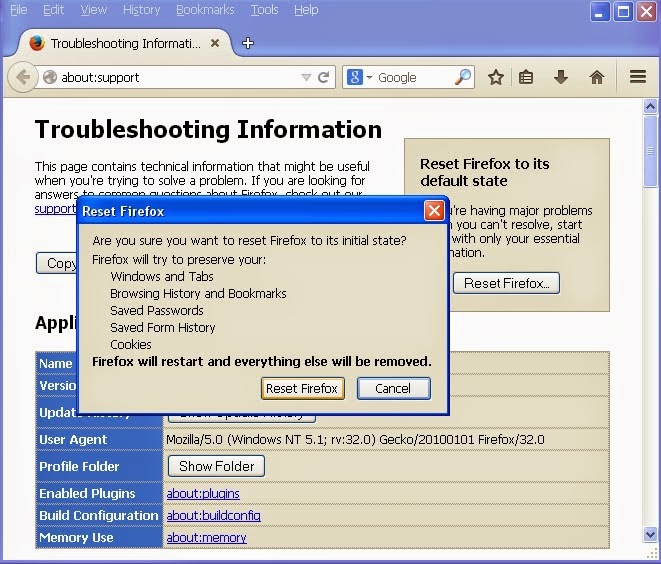
Safari
a) Open your Safari browser from the dock.
b) Click on Safari in your Safari menu at the top of your screen.
c) A drop-down menu will now appear. Choose the option labeled “Reset Safari…”
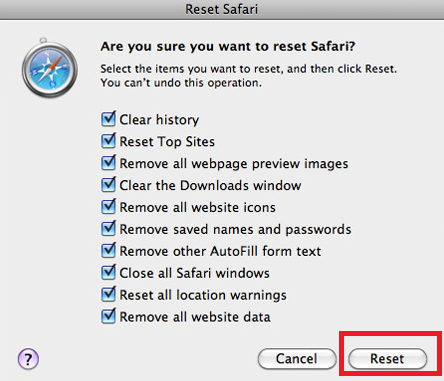
Step 4. Locate junk files and then delete them
On PC: find and delete associated files from C Drive
%ProgramData%\ %CommonProgramFiles%\*.exe %windir%\SeviceProfiles\LocalService\AppData\Local\Temp\random.tlb
On Mac: a) Access hidden Library folder by hold down the Option key while looking at the Go menu in Finder.
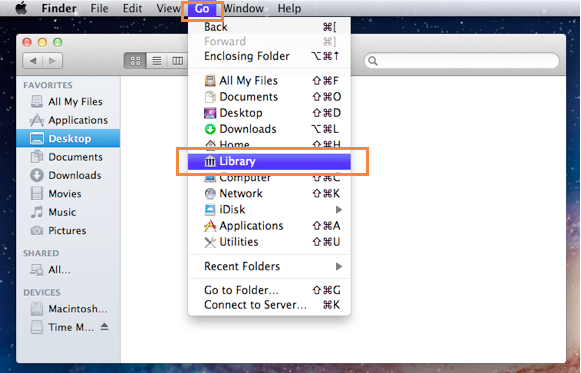
b) Delete related files. You need to check numerous system folders for obscure files such as:
/System/Library/Frameworks/v.framework /System/Library/Frameworks/VSearch.framework /Library/PrivilegedHelperTools/Jack /Library/InputManagers/CTLoader/ ~/Library/Internet Plug-Ins/TroviNPAPIPlugin.plugin /Applications/SearchProtect.app /Applications/InstallMac
(Tips: Care must be given when try this way. Don't empty your Trash until you've determined that everything is working OK, in case you need to restore something you deleted by accident.)
Specially Remind:
Anything taking a hand in your browsing and messing up things like 1-888-684-2961 pop-up scam should be eliminated in a timely fashion. If you are puzzled by the manual removal steps, you could feel free to get assistance from SpyHunter (For Win OS) or MacKeeper (For Mac).



No comments:
Post a Comment